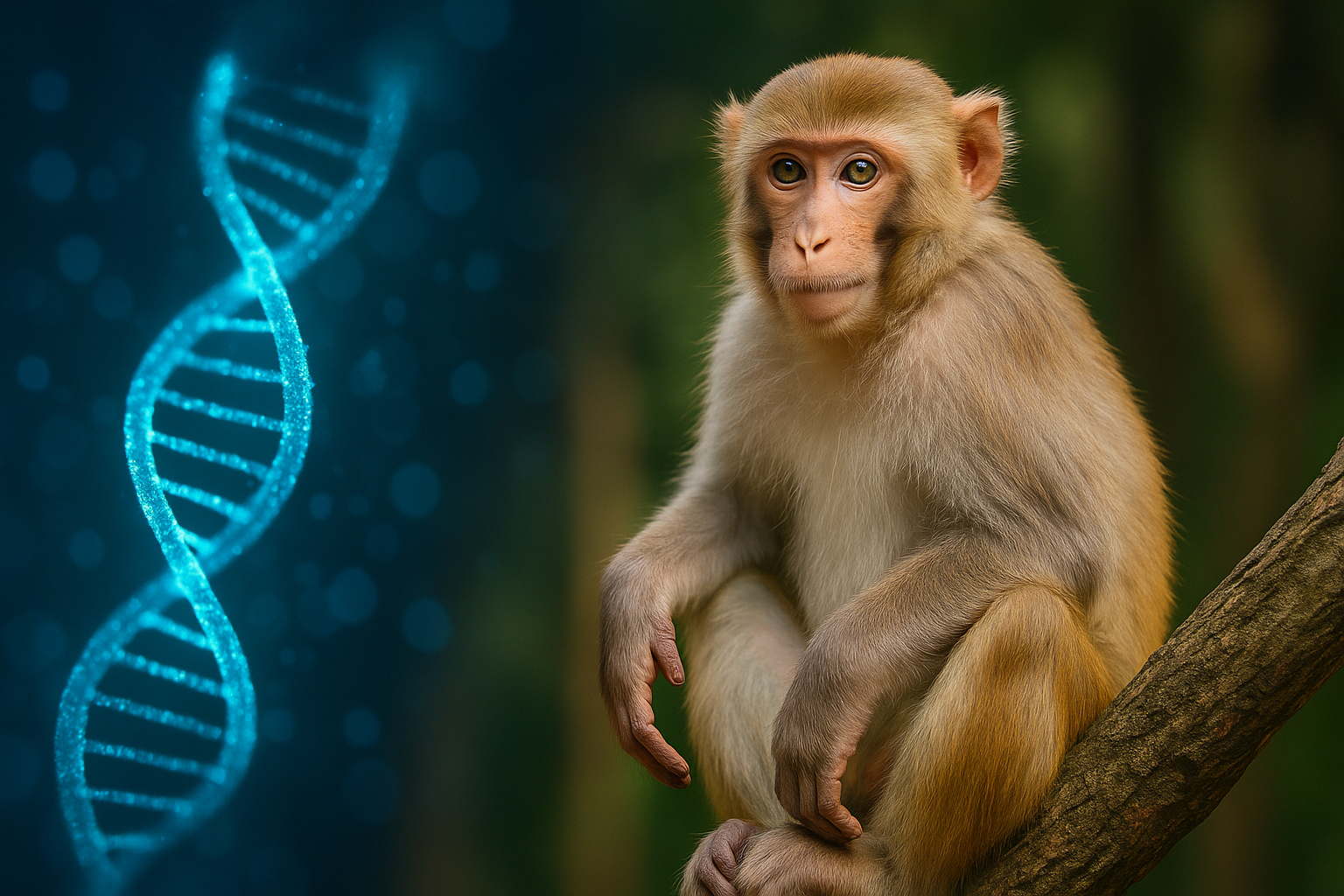Scientists Just Made Old Monkeys Young Again - Here's What It Means
In a Beijing laboratory this year, researchers didn't just slow aging in elderly monkeys. They reversed it.

Published in Cell in September 2025, this is the first time comprehensive rejuvenation has been achieved in primates, our closest biological relatives.
What Happened
Your body has stem cells that repair damaged tissues. With age, chronic inflammation overwhelms them and they break down.
Chinese Academy of Sciences researchers engineered human stem cells with a supercharged version of FOXO3, a "longevity gene" found in centenarians. These enhanced cells could withstand the hostile environment of aging tissues.
They injected these senescence-resistant cells into elderly macaques (equivalent to humans in their 60s-70s) every 2 weeks for 44 weeks.
The Results

Memory improved dramatically
Treated monkeys outperformed controls on tests. Brain scans showed they stopped shrinking and regained young connectivity patterns.
Bones got stronger
Age-related bone loss reversed!
System-wide rejuvenation
Over 50% of 61 tissue types showed reversal of aging. Lungs, heart, reproductive system, skin, and muscles all got younger at the cellular level.
Biological age decreased
Machine-learning "aging clocks" showed an average transcriptomic age reduction of 3.34 years across 54% of tissues, with parallel DNA methylation reductions. The reproductive system, skin, lung, muscle, and hippocampus showed the most pronounced rejuvenation.
Inflammation dropped
Senescent "zombie cells" decreased throughout the body.
No serious side effects
No tumors, immune rejection, or organ damage over almost a year.
Why This Matters

It worked in primates
Monkeys share 93% of our DNA. When something works in macaques, human translation becomes far more likely.
It targets root causes
This addresses fundamental aging mechanisms: stem cell exhaustion and cellular senescence. You could prevent multiple age-related diseases at the same time: dementia, osteoporosis, cardiovascular disease, frailty.
It's straightforward
Simple IV infusion. If proven safe in humans, this could become periodic treatment. Perhaps annual injections!
I joked about "regular maintenance" before, but what if...
The Science
FOXO3 is one of the only two genes robustly associated with human longevity worldwide. It's a master regulator coordinating stress response and activating genes for DNA repair, antioxidant production, and inflammation control.
The researchers took the genetic advantage centenarians possess and engineered it into stem cells for everyone.
The cells release exosomes (microscopic packages of proteins and RNA that travel throughout your body, helping existing cells resist senescence and repair damage. This means injected cells don't need to permanently survive) just long enough to release their beneficial messengers.
What's Next
This is primate research, not human therapy yet. But:
- Safety looks excellent
No tumors, immune rejection, or adverse events in 44 weeks. The cells showed tumor-suppressive properties. - Human trials are coming
Researchers are developing a "shelf-ready human stem cell product." - The science is solid
The team mapped exactly how it works from molecules to organs.
Early human trials might begin in 2-3 years. Regulatory approval, if achieved, likely 5-10 years out.
The Bottom Line
This proves we can intervene in aging itself in a complex mammal similar to us. Treated monkeys were healthier old monkeys. The goal is extending "healthspan" (years in good health), not just lifespan.
Be excited
This is genuine progress. Sound methodology, dramatic results, rigorous science in a top journal.
Be cautious
Primate studies don't always translate to humans. The treatment could be less effective or have unexpected side effects. Ignore anyone selling "FOXO3 supplements". You can't replicate engineered stem cells with pills.
What You Can Do Now
The fundamentals haven't changed:
- Exercise (especially resistance training)
- Manage inflammation (diet, stress reduction, no smoking)
- Stay socially and cognitively engaged
- Sleep well
- Talk to your doctor about existing evidence-based interventions
Gotta stay alive long enough till this is proved in humans and available to everyone.
The Truth
This is one study, in one species, in 2025. But for the first time, we have clear evidence that comprehensive biological rejuvenation is possible in a species very much like us.
The monkeys got younger. The question now is: can we?
Cheers, Zvonimir